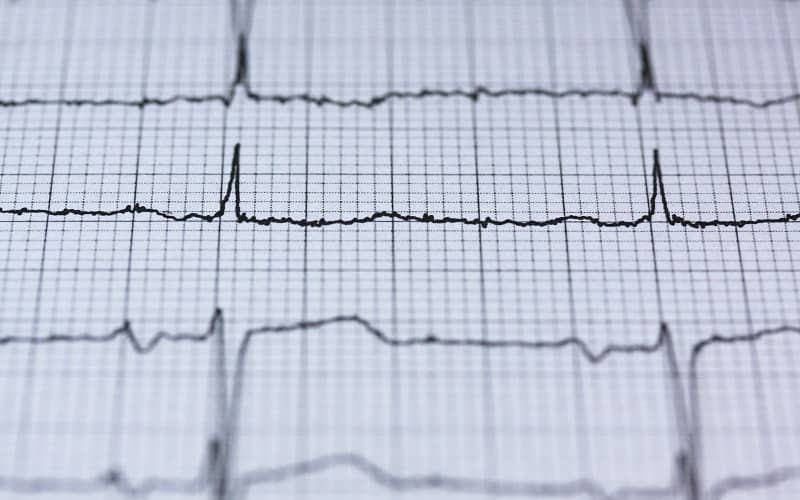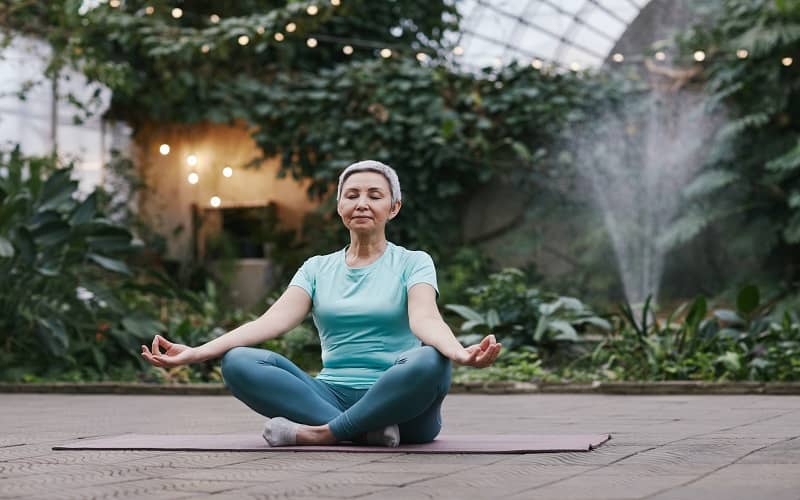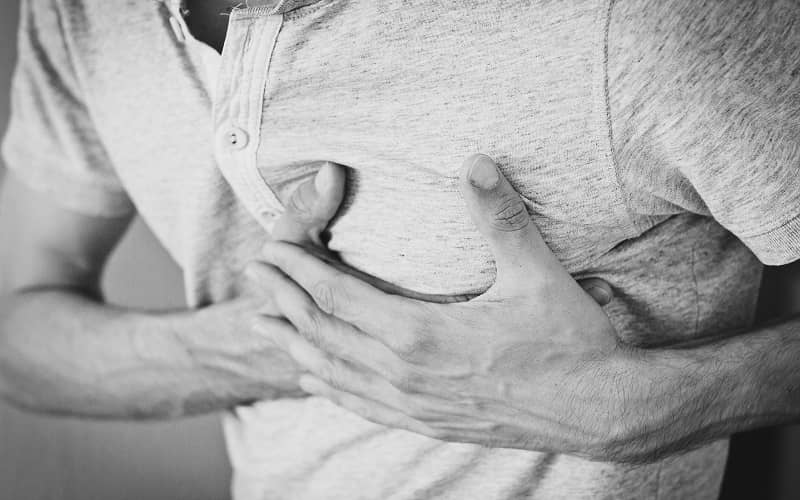Heart palpitations show the state in which an individual has a feeling of fluttering, pounding, or fast-beating heart.
Sometimes stress, yoga, exercise, dancing, medications, or rarely, a medical condition triggers it. You can feel your pounding heart in these conditions.
Most of the time, it happens because of anxiety and stress. It also happens due to excess intake of alcohol, caffeine, or nicotine.
Moreover, often palpitations are not serious.
So, when are heart palpitations dangerous?
If continuous heart palpitations last more than 30 seconds, that should be considered as a medical emergency.
It is normal in our run-of-the-mill life. Sometimes they can be related to abnormal heart rhythm, heart valves, or panic attacks.
You should consider your heart condition more carefully; otherwise, it will lead to failure of the heart.
Some people avoid heart palpitations for months, which develop the risk of enlargement and heart failure. Hence, don’t avoid this state, if you have a rapid heart over a long period.
Likewise, there are so many stages where heart palpitations can be dangerous.
Call a doctor for this emergency, when palpitations change in nature or it increases suddenly.
When Are Heart Palpitations Dangerous?

You should be worried about heart palpitations if:
- If you are experiencing frequently heart palpitations for longer than 30 to 40 seconds
- They are accompanied by: chest pain, nausea, excessive sweating, dizziness, shortness of breathing, and loss of consciousness, you should contact your doctor.
Palpitations can happen anytime. But is it true that it can last for hours?
Can Heart Palpitations Last For Hours?
Sometimes fast and irregular palpitations happen in the upper chambers of the heart or atria.
That could last a few minutes to an hour which is not normal.
However, heart palpitations for hours could be a dangerous state.
When atrial fibrillation arrhythmias become chronic, it can lead to stroke.
A stroke is a medical emergency that needs to get treated immediately, it is crucial. In this situation, you should call a doctor or ambulance.
Can Heart Palpitations Last For Months?
Heart palpitations are usually harmless.
But if they are happening frequently or lasting for a longer period like months, it can be an indicator of heart disease.
It is the indicator of more serious heart conditions like an active thyroid or an irregular heartbeat. In this situation, do not take any risk.
Consider your heart condition. You must make an appointment with a cardiologist.
However, at the initial stage, you can reduce normal heart palpitations with home remedies.
How To Stop Heart Palpitations With Home Remedies?

If your heart is skipping a beat, you can take a moment and try these home remedies to stop heart palpitations.
#1. Stay Hydrated
Due to dehydration, the heart has to work harder to circulate blood. That causes heart palpitations. You should drink plenty of water throughout the day.
#2. Exercise Regularly
By exercising regularly, we can improve our cardiovascular health. When you exercise, you restore the heart’s natural rhythm.
Cardiovascular exercise helps in strengthening heart health which prevents palpitations.
#3. Relaxation Techniques
Stress or anxiety can induce heart palpitations. In fact, they can make it worse. Stress and anxiety have many bad effects on a person’s health.
You can also try meditation, yoga, spending time outdoors, taking breaks, deep breathing, and journaling for the good health of your hearts.
#4. Stimulation Of Vagus Nerve
This nerve connects the brain to the heart, by stimulating it; you can calm the heart palpitations.
All you have to do is cough, gagging, chant “om”, place ice on the face for a few seconds, and make a bowel movement.
Ask a doctor first to know about the best techniques.
#5. Imitate Stimulant Intake
If you are using stimulants, you can notice its symptoms.
Stimulants include tobacco products, illegal drugs, cough medicines, caffeinated beverages, marijuana, mental drugs, and some high blood pressure medicines. These stimulants can cause palpitations.
#6. Keep Electrolytes Balanced
These are molecules found throughout the body. It helps to transfer electrical signals. Those signals play a significant role in regulating the heart rate.
You can boost the number of electrolytes in your body by eating food that contains: sodium, potassium, calcium, and magnesium. It helps you in reducing heart palpitations.
This was about natural ways to stop heart palpitations. But what if the palpitations still continue to exist? When is the right time to see a doctor to stop heart palpitations?
When You Should See A Doctor?
At some point, we all have experienced heart palpitation. Majorly they are not harmful at all.
But sometimes, maybe your heart is trying to tell you that something is wrong with it.
You must contact a doctor when your heart palpitations occur frequently and last longer than a few seconds.
If you are healthy, you need not worry about it. Because it happens now and then.
Nevertheless, it’s better to monitor your heart palpitations.
You should also keep track of how often it happens and how long it lasts.
Visit your doctor, he will make an accurate diagnosis.
This was all about when are heart palpitations dangerous and how to reduce them naturally.
Conclusion
Heart palpitations are not always something to be worried about. Even stress or an intense workout can also give rise to palpitations.
However, quick and wise steps are always recommended and actually better to avoid any mishap.
If your heart palpitations last for more than a few minutes, it’s better to contact a doctor.
NOTE: This blog is not a substitute for medical advice.
If you liked the blog, don’t forget to share your views in the comment section below.
